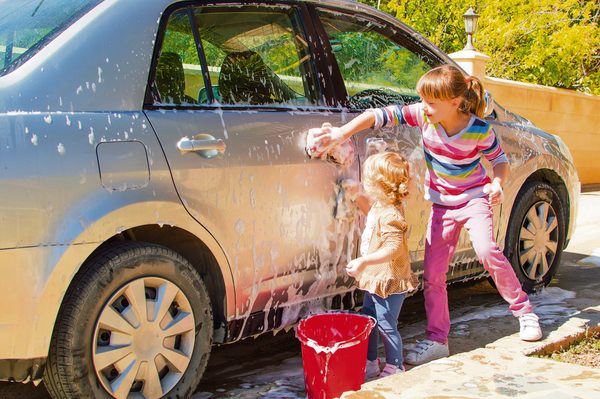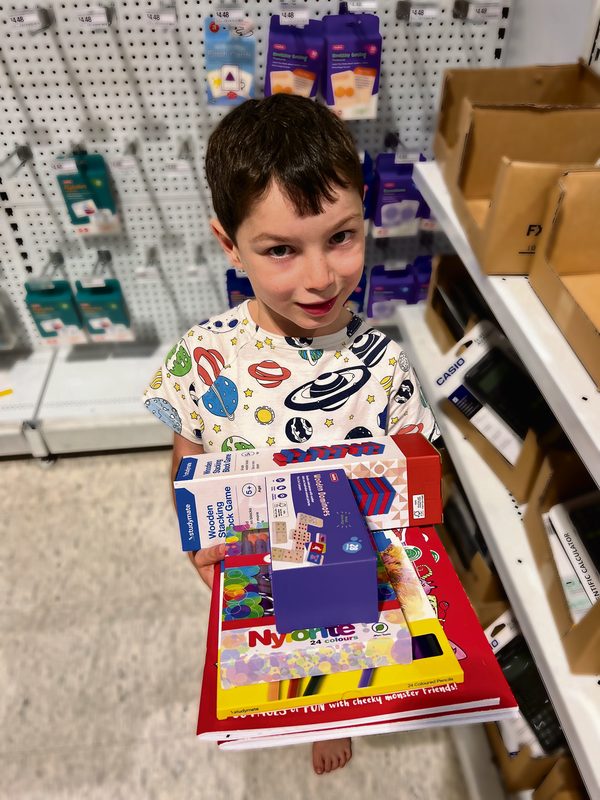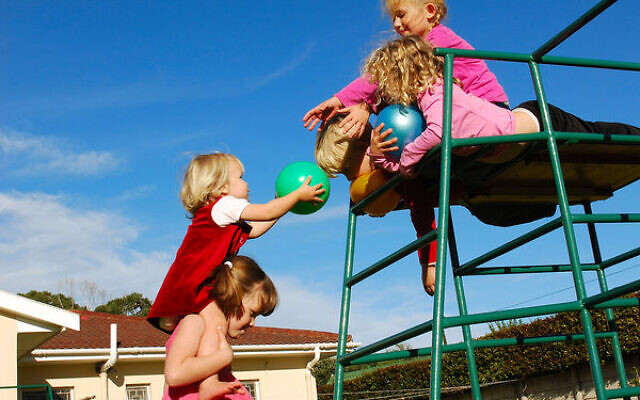Showing a little bit more kindness
Gemilut chasadim, or acts of loving-kindness, holds a central place in Jewish ethics and values. Rooted in the belief that all human beings are created in the divine image, gemilut chasadim encourages people to extend compassion, empathy and assistance to others.
I am often asked what my hopes are for my children. Do I want them to listen and learn and absorb everything they possibly can? Yep. Do I want them to achieve everything they dream of? Most definitely. Do I want them to reach their full potential and always be happy in their lives? Absolutely.
But above all else, I want them to be kind.
I want them to be the one who walks up to the new child in their class and asks them to play; the one who cares for their siblings. I want them to be the one who helps someone who is hurt or upset. Because I think we all need a little bit more kindness in our lives – the world would be a much more peaceful place if we did.
So, what does this have to do with Rosh Hashanah?
While Rosh Hashanah is a time of reflection and renewal, it also provides an opportunity to engage in two essential principles deeply ingrained in Judaism.
First, acts of kindness, also known as gemilut chasadim and second, charitable giving, or tzedakah. These principles not only shape the way individuals relate to others but also offer a profound way to prepare for the High Holy Days.
I always talk to my children about acts of kindness, and that while grand gestures are lovely, kindness doesn’t have to be done in a big way. It can be as simple as smiling at a person while walking by. It can be taking a spare couple of dollars in your bag to give to a friend as tuckshop money. It can be cleaning up a mess that’s not yours, holding the door open for the person behind you, helping a sibling with a problem, setting the table for dinner, drawing a picture for someone you love, or hanging up someone’s hat or jacket if it has fallen.
Gemilut chasadim, or acts of loving-kindness, holds a central place in Jewish ethics and values. Rooted in the belief that all human beings are created in the divine image, gemilut chasadim encourages people to extend compassion, empathy and assistance to others. This principle goes beyond mere gestures of goodwill; it encompasses a mindset that encourages individuals to consistently seek ways to improve the lives of those around them.
As Rosh Hashanah approaches, the practice of gemilut chasadim gains particular significance. The act of preparing for the New Year involves not only personal introspection but also reflection on one’s interactions with others. By performing acts of kindness, individuals not only fulfil the mitzvah to love their neighbours but also align themselves with the spirit of renewal that Rosh Hashanah represents.

My kids and I also talk about the concept of the ‘ripple effect’. If you do acts of kindness for people, they in turn will feel inspired to be kind to others. We chat about how doing an act of kindness makes you feel – proud, happy and grateful that you can do such wonderful things – and that the intention behind acts of kindness aren’t solely about the immediate impact, but about how we continue to live our lives.
Then we turn to tzedakah.
I know that from the age of two, I was giving tzedakah at kindy each Shabbat. Now, I hand a gold coin to each child on a Friday morning. It’s all about teaching them to give back.
Tzedakah isn’t a mere philanthropic act; it teaches humility, empathy and a sense of responsibility towards the world.
Again, I speak about this a lot to my children. Just a couple of weeks ago, my eldest son and I were chatting about how he could help those less fortunate than him. We decided that whatever money he gets for his birthday this year – which significantly falls on Yom Kippur – he will donate a little bit to a charity. We also speak about ways in which I and other people in my family give back to the community. To me, if I’m going to encourage him to give tzedakah in whatever way he can, I need to walk the talk.

But he has already shown a level of maturity that I never expected. When the bushfires ravished Australia in 2019, he came to the grocery store and lugged bottles of water, eye drops and snacks for the firefighters to the checkout, before delivering them with us to donation sites. And when the floods hit Queensland in 2022, he came with me to buy new books, colouring in pencils and games for children just like him who had lost all their school supplies.
Again, tzedakah doesn’t need to be a monetary donation or anything huge. Sometimes the smallest acts of tzedakah can make the biggest difference. Choose a few items during your grocery shop to donate to a community member in need or a food bank. Do a clean-up of your linen cupboards and donate what you no longer need to an animal shelter. Donate unopened toys to a children’s hospital or if you have some that have been opened but used, sell them and donate the money to a charity of your choosing.
Talking about this with our kids instils a sense of giving in them. Children who give grow up to be adults who give. Again, it’s the ripple effect.
And Rosh Hashanah serves as an ideal time to emphasise the importance of tzedakah. As we engage in introspection and seek self-improvement, giving to those in need becomes an embodiment of our Jewish values. It also becomes about the idea of tikkun olam, repairing the world.
So, what’s so meaningful about doing these acts around the time of the High Holy Days? Of course, we should be kind and charitable as much as we can throughout the year, but around Rosh Hashanah and Yom Kippur, it also gives us the opportunity to reflect on the year gone by and commit to change and grow in the year ahead.
As Rosh Hashanah approaches, we all have a unique opportunity to weave the principles of kindness and charity into our everyday lives.
Our world seems divided. The principles of kindness and charity remind us of our shared humanity and the potential for positive change.
So as the shofar sounds to mark the beginning of the new year, let’s all commit to action. Let’s all embody the values that are at the heart of Rosh Hashanah – kindness, compassion and the pursuit of a better world for all.


comments